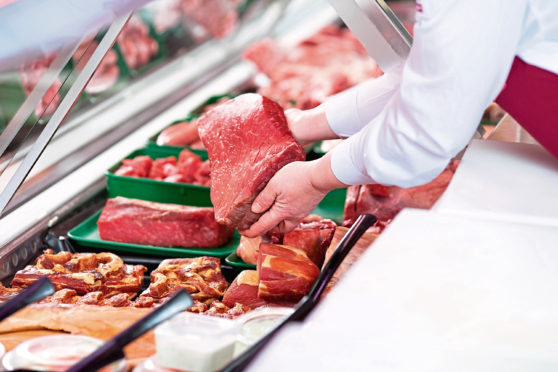Rural Economy Secretary, Fergus Ewing, writes about the importance of supporting farmers and food producers
This weekend marks the start of Food and Drink Fortnight – an opportunity for those in the industry to celebrate the great Scottish produce that they all grow, sell and serve.
This is also a fantastic chance to enjoy the world-class food and drink to be found here in Scotland and toast the people who work so hard to produce it.
Throughout the Covid-19 pandemic the food and drink industry has stepped up to ensure we all have access to good food, often in very challenging circumstances. In these difficult times, we have also seen remarkable resilience, creativity and innovation from the sector.
In recent years, food and drink has been one of our strongest economic success stories, particularly for our rural economy.
Across Scotland we have more than 17,000 food and drink businesses employing around 122,000 people, with an annual turnover of £15 billion. It is also one of our biggest exports, with exports of food and drink worth a record £6.7bn in 2019 – up 62% since 2009.
Despite this, we know the pandemic – combined with new tariffs on whisky and salmon exported to the US and the uncertainty caused by Brexit – will pose further challenges for the sector, with industry modelling predicting overall turnover is likely to reduce by £3bn this year alone.
Now, more than ever, it is vital we do everything we can to support recovery and growth.
But the UK Government’s moves to exit the post-Brexit transition period at the end of this year with no trade deal in place is a huge threat to Scotland’s food and drink success story and to the wider agriculture and fishing sectors. With time running out, there are very real fears that even if a deal is struck it will be a bad one which is likely to make it much harder for our food and drink sector to export their goods.
On top of that, UK ministers’ plans for a so-called UK internal market threaten to undermine devolution, and have been roundly condemned by many, including NFU Scotland.
In the face of such challenges, the Scottish Government will do everything we can to support our food and drink industry.
Over the coming months, we will help the sector to launch its recovery plan, which will focus on stimulating demand for Scottish products in key markets and supporting businesses to capitalise on that demand. Key to this work will be a new local food strategy for Scotland and the creation of a new agriculture producer organisations to strengthen the position of farmers, producers and crofters in the supply chain.
We will develop farmer-focused supply chains with farmers and food producers at their core, helping to make farming more sustainable and profitable in the longer term.
The Scottish Government is also supporting EU citizens – tens of thousands of whom work within the food and drink sector – to apply to the UK Government’s EU Settlement Scheme through our Stay in Scotland campaign.
This action is all about protecting those who work in the industry, as well as one of our most economically important sectors operating in some of our most rural and fragile communities across Scotland.
Earlier this week, I was reminded of the unique opportunities we have by the work of the Scottish Venison Association.
To mark Scottish Venison Day yesterday, it launched a new drive to promote the sale of venison from stalkers and estates direct to local butchers and restaurants. Initiatives like this – bringing people closer to the source of their food – have an important role to play as we seek a green recovery from the impacts of the Covid-19 pandemic.
So I urge everyone to make an extra effort to buy local over the next fortnight and make the most of what we have available right here on our doorstep.
